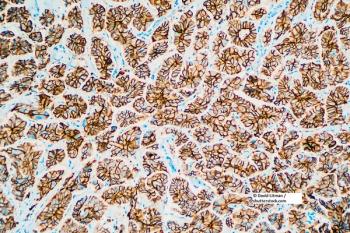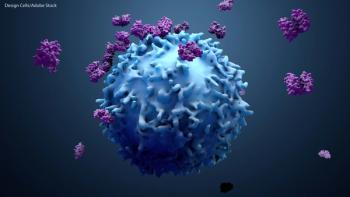
Researchers developed a risk score assessment to measure potential risk for chemotherapy-induced heart failure

Your AI-Trained Oncology Knowledge Connection!


Researchers developed a risk score assessment to measure potential risk for chemotherapy-induced heart failure

A study showed that acupuncture use brought a significant reduction in pain along with a decreased use of analgesics.

Largest analysis of data to date shows no link between use of talc powder and rate of ovarian cancer incidence

Results of this phase III trial could change the current standard of care for treating nonseminomatous or combined germ cell tumors of the testis.

Breast cancer survivors who underwent chemotherapy or hormone therapy were found to be more likely to have a higher symptom burden and lower overall sense of well-being than noncancer counterparts.

A phase I study showed brentuximab vedotin combined with a standard chemotherapy regimen of mitoxantrone, etoposide, and cytarabine may be safe and well tolerated in patients with relapsed/refractory acute myeloid leukemia.

An analysis of the results of the phase III PANTHER trial showed that a combination of tailored dose-dense adjuvant chemotherapy and trastuzumab decreased the relative risk of relapse for patients with HER2-positive breast cancer.

The use of common heart drugs in conjunction with cancer therapy led to reduced cardiotoxicity in patients with breast and hematological cancers.

The use of aspirin 3 or more times a week was associated with a reduction in all-cause, cancer, gastrointestinal cancer, and colorectal cancer mortality in adults 65 and over, according to a study published in JAMA Network Open.

A research team from the Mayo clinic verified the known risk factors for endometrial cancer, while identifying a possible microbiome signature associated with the disease.

Integrated analyses showed entrectinib to be both effective and well tolerated in patients with rare ROS1 and NTRK gene fusions.

The updated and expanded NCCN guidelines broaden the testing criteria, while clarifying who should be tested for genetic mutations.

Patients with metastatic non-small cell lung cancer who harbor HER2-mutations may develop brain metastases more frequently during treatment.